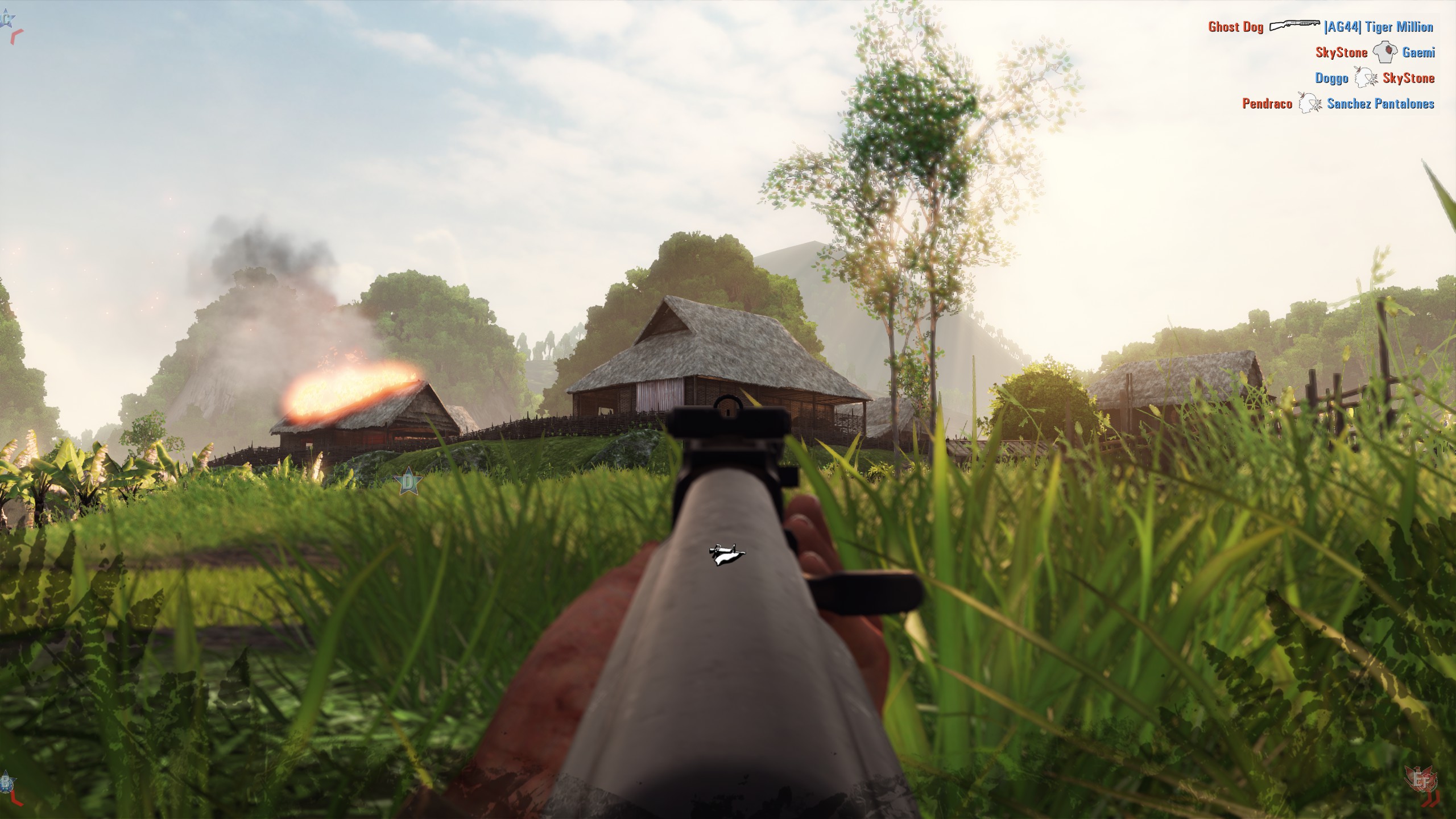Rising Storm 2: Vietnam is one of the toughest tactical shooters to release in recent years. Made in the same vein as Red Orchestra, its commitment to war simulation is admirable, yet commonly a source of frustration.
We’ve been playing Rising Storm 2: Vietnam non-stop for the past few days, and have learned a lot along the way. Below you will find a quick guide to everything you need to know to be successful.
Choosing a Class
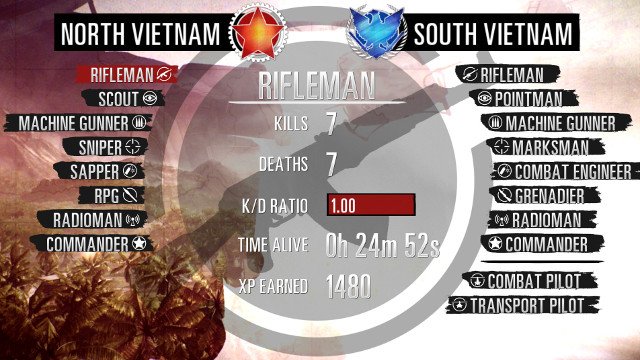
There are a number of classes/roles available to players. These differ depending on which team you’re playing on, but can be broken down as the following:
- Rifleman: Responsible for engaging in combat and capturing objectives.
- Scout/Pointman: Responsible for placing pressure on opponents on the front line, preferably in close quarters combat.
- Machine Gunner: Responsible for defending objectives and laying down suppression fire so other units can move forward.
- Sniper/Marksman: Responsible for defending objectives and taking down enemies who are out of position.
- Sapper/Combat Engineer: Responsible for destroying barricades and creation entry points for the team.
- RPG/Grenadier: Responsible for clearing buildings and taking out enemies hiding behind cover.
- Radioman: Responsible for providing the Commander with a radio to dial in support requests.
- Commander: Responsible for leading the team.
- Combat Pilot: Responsible for providing air support for the team.
- Transport Pilot: Responsible for transporting teammates to landing zones for deployment.
If you aren’t comfortable taking a specialized role, then it’s best to play as a Rifleman. This role is simple, equipped with a rifle and grenades.
It is recommended that you avoid playing as a Pilot or Commander during your initial hours, as these roles are heavily influential and difficult to play effectively.
Gameplay Dynamics
Rising Storm 2: Vietnam is a tactical shooter that prioritizes realism. This means that it plays very differently than most other popular shooters, making the early hours very challenging.
One of the first things you want to do is set your weapon to single-shot. This can be achieved in the Gameplay menu, or by toggling your fire mode (default is X). Recoil is ferocious, tossing your weapon back upon each bullet shot. Most missed shots are due to players fumbling with controls during intense situations, so the more calm you can be during contact, the better off you’ll be.
Recoil can be lessened by either shooting at a slower pace or by placing yourself in a crouch (default is Ctrl) or prone (default is Alt) position.
Also Read: Official Rising Storm 2 Review – Is This the Best Tactical Shooter of 2017?
You can lean left or right to peek around corners (default is Q and E). This is an important tool to harness, as it allows you to quickly check for enemies and then pop back behind cover instantly at the press of a button.
When shooting from hip fire, bullets will travel in the direction your gun is facing, rather than at the center of your screen. Keep this in mind during close quarters engagements.
Squad Play
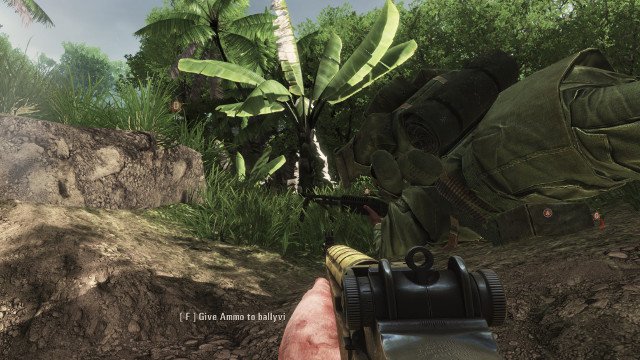
Playing as part of a squad is an integral part of the teamwork dynamic in Rising Storm 2: Vietnam.
Each squad is led by a Squad Leader, a role which is responsible for the following:
- Directing squad members to objectives.
- Mark artillery points.
- Placing squad tunnels.
Squad leaders should be familiar with map layouts and highly aware of their surroundings to place squadmates in the best position possible. Thus, it is recommended that only experienced players assume this role.
As part of a squad you will have access to squad voice chat. You can bind a key to chat to your entire team or specifically to your squad in the settings.
Squadmates are denoted by a green triangle, as opposed to the blue triangle icon of non-squad teammates. It is recommended that you stick together with squadmates when moving offensively.
Your goal is to move as part of your team to objectives, either defending or attacking them. You will earn points for focusing on objectives, and more directly impact the outcome of the match versus players who camp in exterior areas or try to run around taking out stray enemies.
You can view a compass and all objective points (default is T) at any time. It is important to pay attention to which objectives are contested, and prioritize these.
The Commander
Each team has one Commander position available. The commander plays the game with unique support mechanics and a responsibility to communicating to the team.
A Commander menu is available which houses the following options:
- Rapid deployment: Lowers deployment cooldown.
- Aerial Recon: Scans the area for enemies and marks them on the map.
- Request Spooky: Sends in a gunship to spray down an area with gunship fire.
- Request Artillery: Bombards target area with artillery fire.
- Request Napalm: Bombards target area with napalm.
Note that this menu is only available from a radio, which are carried by players in the Radioman role.
Setting a rally point should be done often to direct the team to critical areas of the map. During group conflict for objectives, Spooky, Artillery, or Napalm should be called in to clear out enemies. Spooky are best for pinning down enemies, Artillery excels at destroying defensive encampments, while Napalm has the unique attribute of being able to expand, making it powerful for clearing interior installations.
Unlike in some similar games, the Commander is able to play as an infantry unit on the game map. Therefore, he is a high value target that should be kept alive at all times.
As Commander, it’s important to play behind the front line, observing what’s happening on the battlefield and reacting accordingly.
Tips
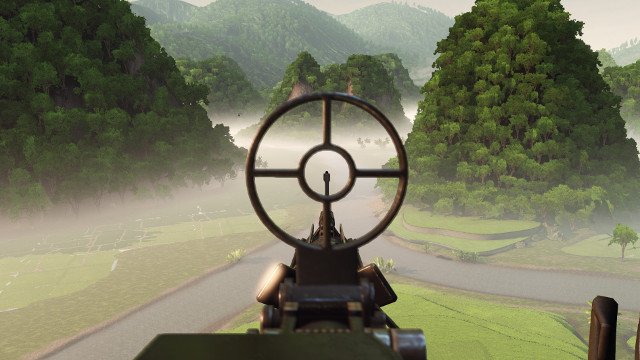
Here is what you can do to ensure that you have a fighting chance at winning:
- Play slowly and with patience. Players not being cover or with teammate support are extremely vulnerable.
- Pay attention to map layouts. Learning the main routes of foot traffic and where players tend to set up defensive positions is extremely helpful.
- Control your recoil. Don’t bother shooting quickly, as most of your bullets will end up flying into the sky.
- Use your microphone. Communication is instrumental to winning.
- Don’t forget to place traps. These are an easy way to take out enemies.
- Zig zag when moving between cover. It’s difficult to hit shots, and targets that move erratically are a nightmare to take down.
- Focus on objectives. These determine whether you win or lose, not your KDR.
- Smoke grenades are how you push forward. If your team is feeling like it can’t approach a position, it’s because you aren’t using smoke grenades for cover.
- Pay attention to artillery and napalm. A large percentage of deaths are from artillery and napalm. When you hear an attack coming, get out of the area.
- Careful when throwing grenades. A large number of team kills are from grenade mishaps.
- Spend most of your time crouched. Standing upright is only for running fast in safe locations. But really, no place is ever completely safe. You can semi-sprint while crouched, anyway.
- Stick together. This is a team game, and you’re going to have a hard time if you try to play lone wolf no matter how good your aim is.
Good luck on the battlefield, soldier.
Rising Storm 2: Vietnam Review
-
Rising Storm 2: Vietnam 1440p Gameplay Screenshots
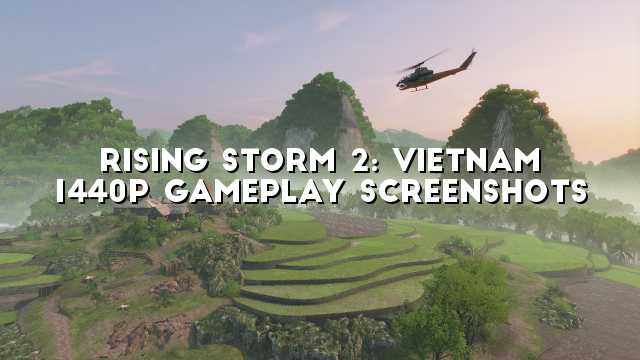
-
Rising Storm 2: Vietnam Review #2
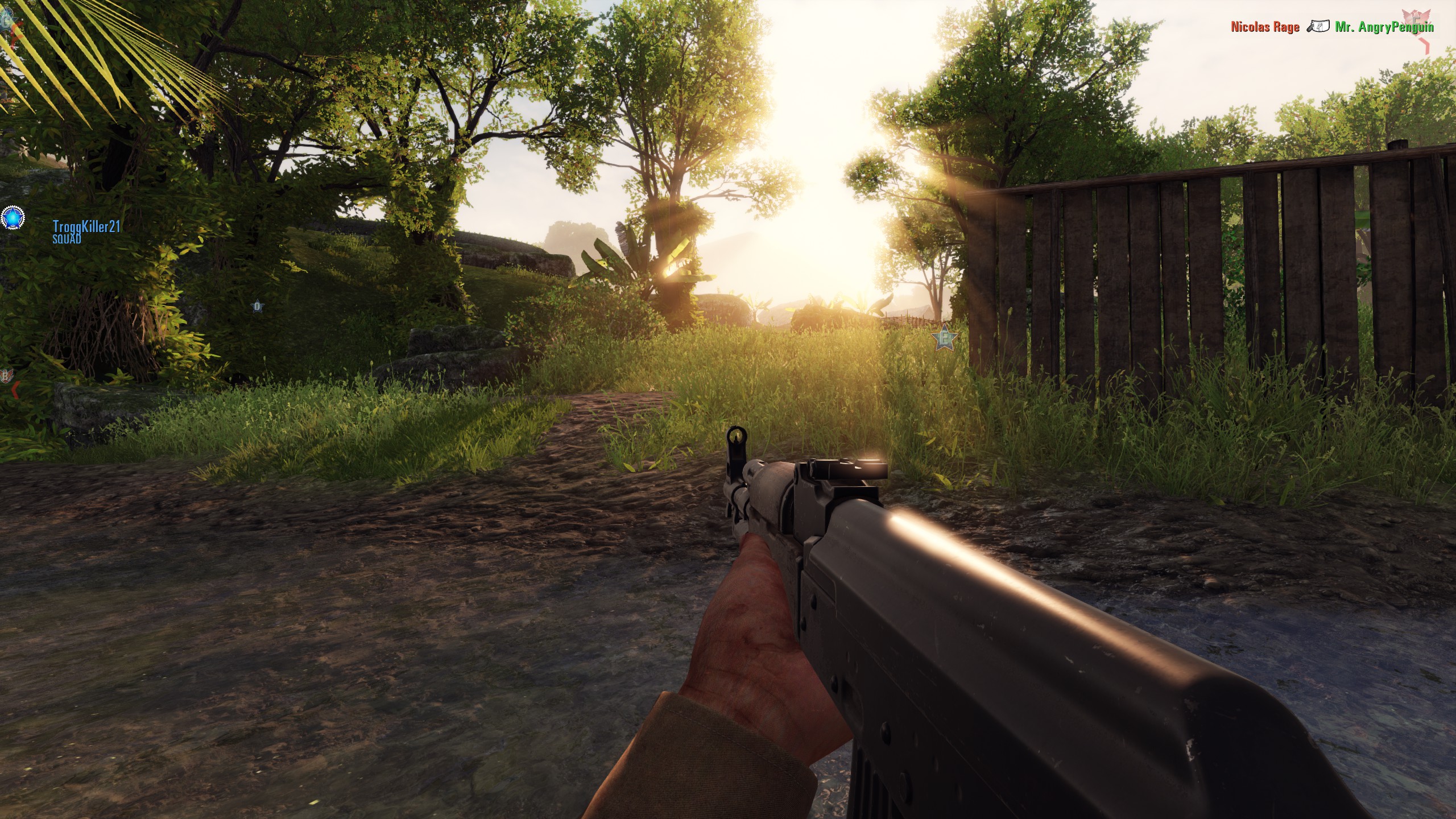
-
Rising Storm 2: Vietnam Review #3
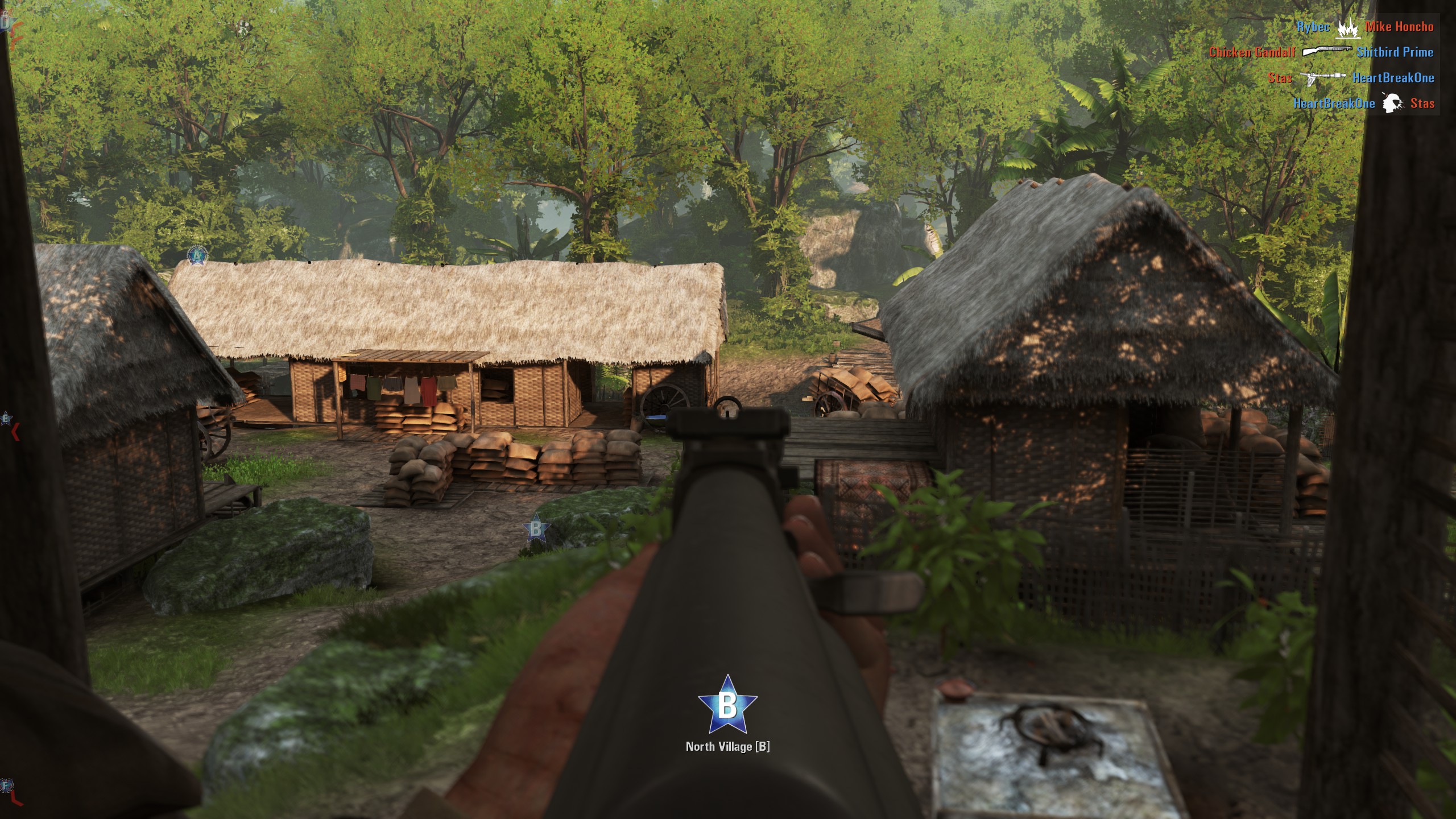
-
Rising Storm 2: Vietnam Review #4
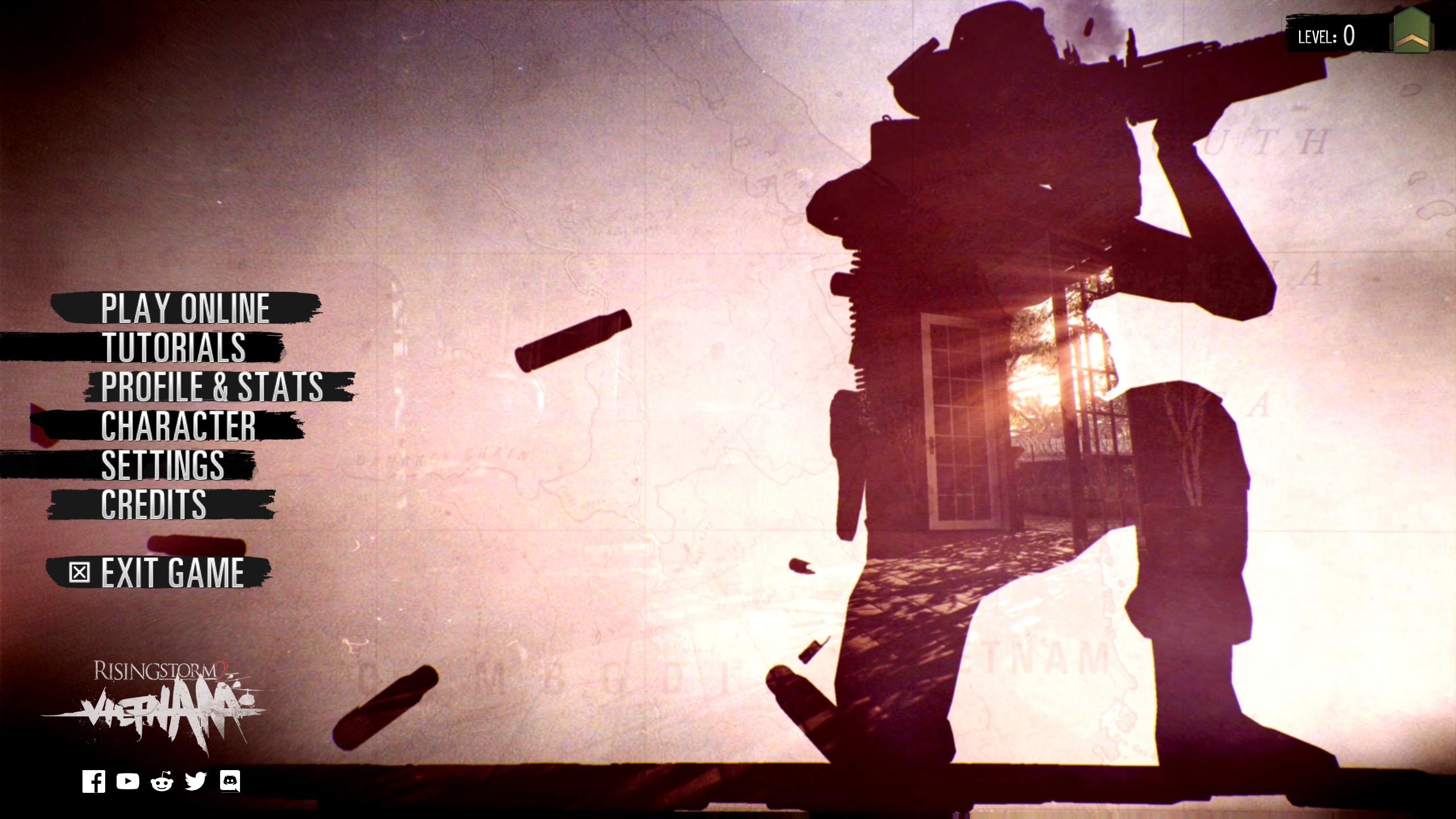
-
Rising Storm 2: Vietnam Review #5
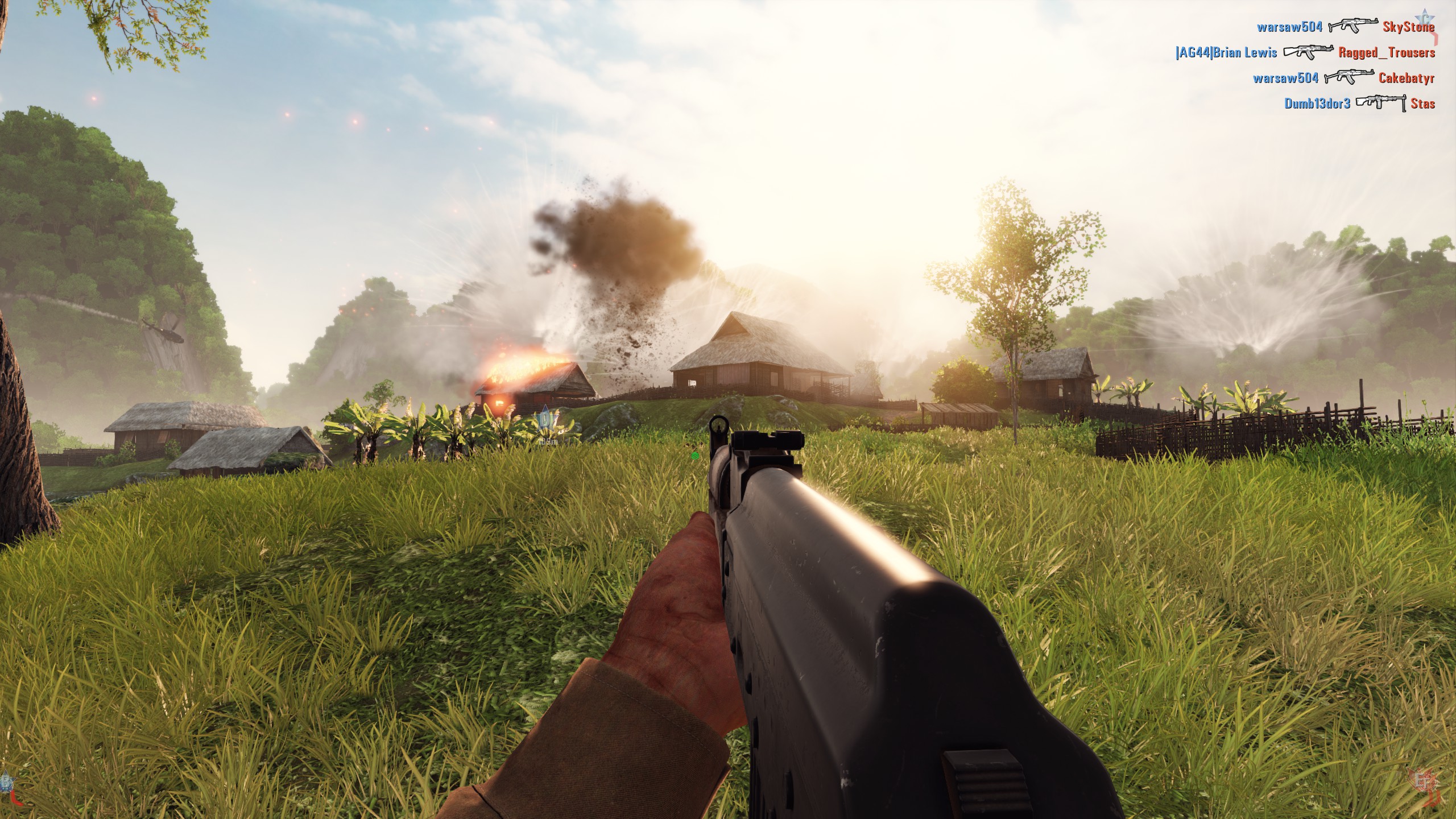
-
Rising Storm 2: Vietnam Review #6
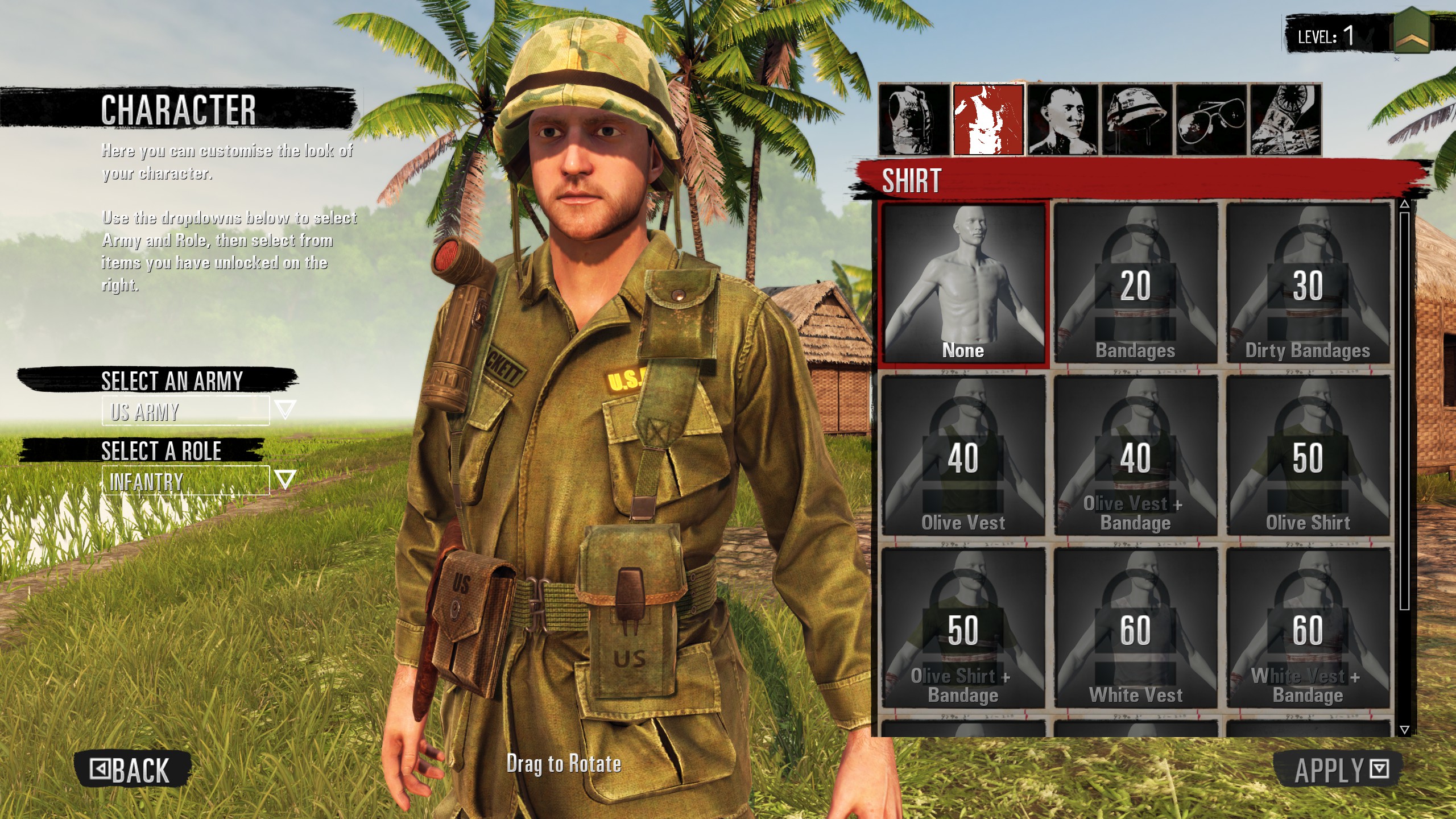
-
Rising Storm 2: Vietnam Review #7
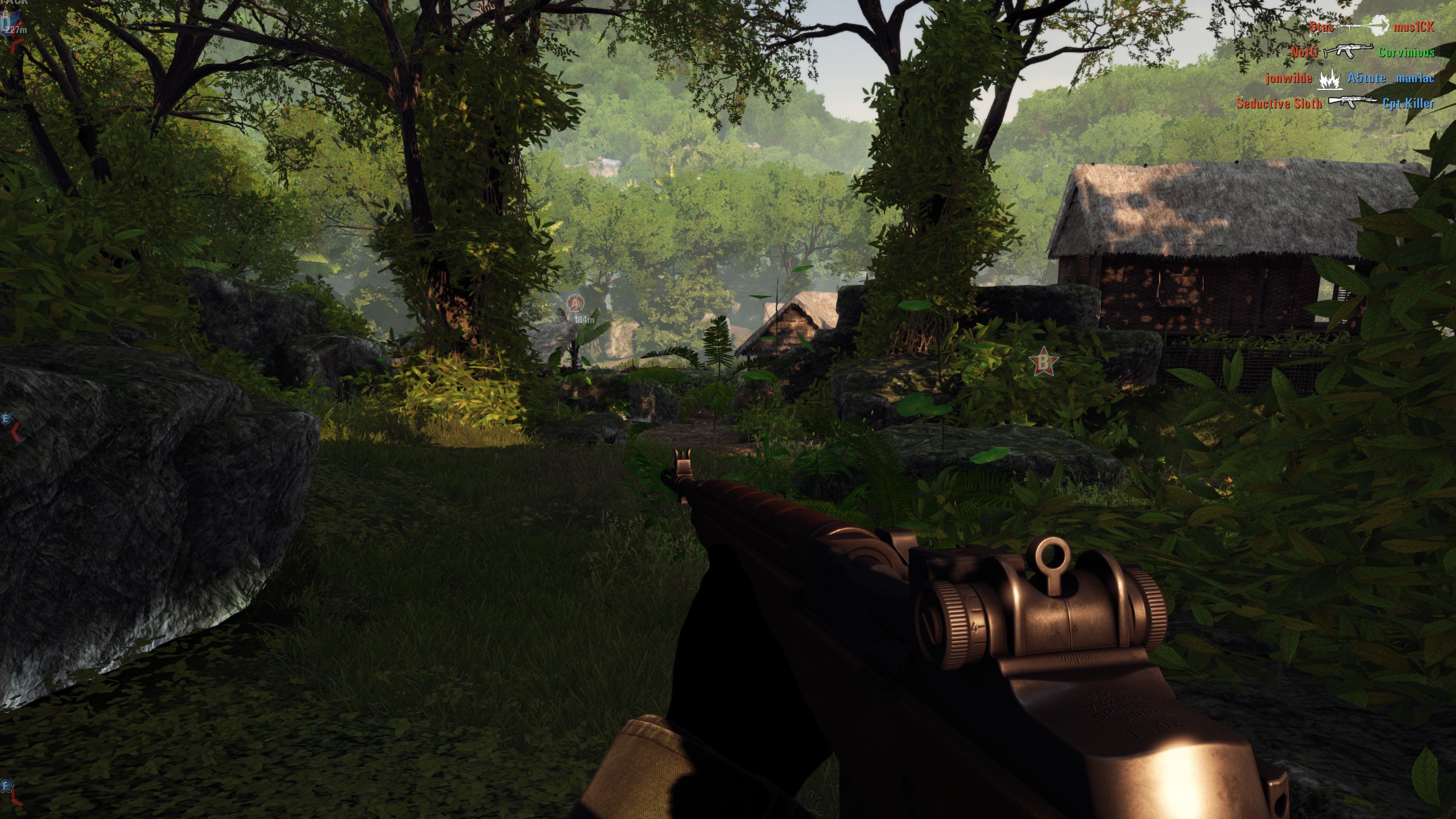
-
Rising Storm 2: Vietnam Review #8
